by Allison Schlack
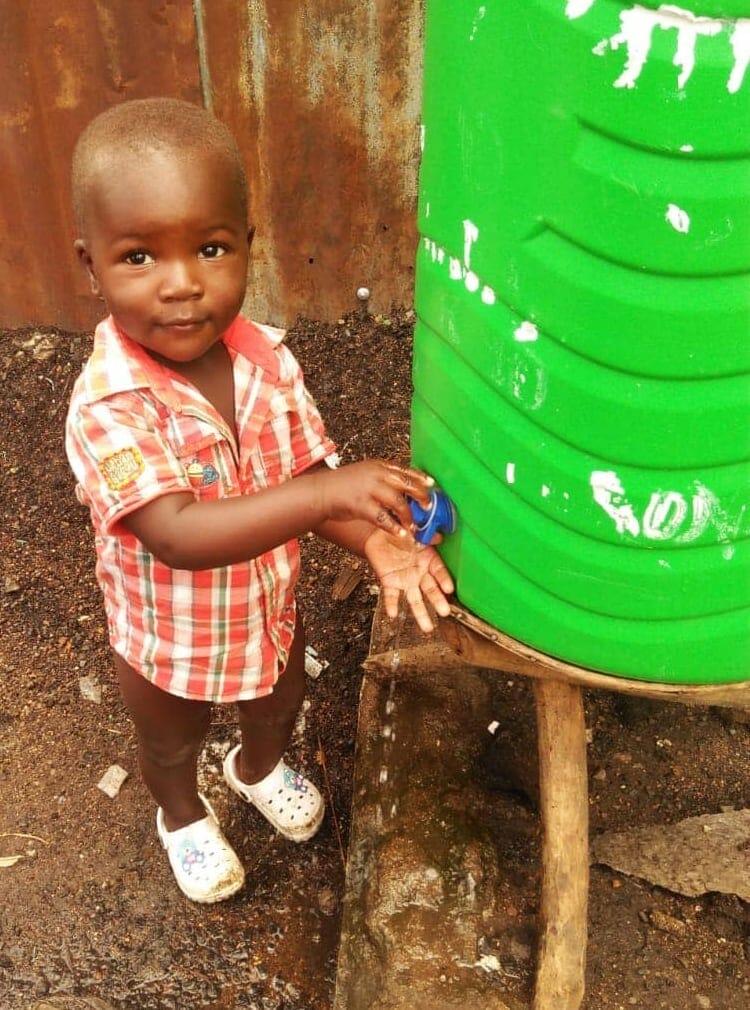 |
| A young boy uses an Ndoto handwashing station |
On March 12th, the Kenyan government announced its first case of COVID-19. The young woman had flown from the US through London on her way to back to Kenya. All seemed well until she started to experience symptoms. She immediately went to the hospital and got tested. She remained in quarantine, received treatment, and later made a full recovery. This is how it began for us. Initially, all cases were linked to people with a history of travel.
Eventually the contact tracing teams started to pick up folks who hadn’t traveled. People in Kenya were giving it to each other. As expected, the majority of cases were in Nairobi and Mombasa, the two largest cities in Kenya, and the only two with international airports. So, the government did what so many other governments did as well: they shut down everything. First, it was a ban on international travel. Then, schools were closed, followed by a ban on gatherings of any kind. Then restaurants switched to “to-go” options only. Like the rest of the world, we were told to quarantine at home and do what we must to be safe.
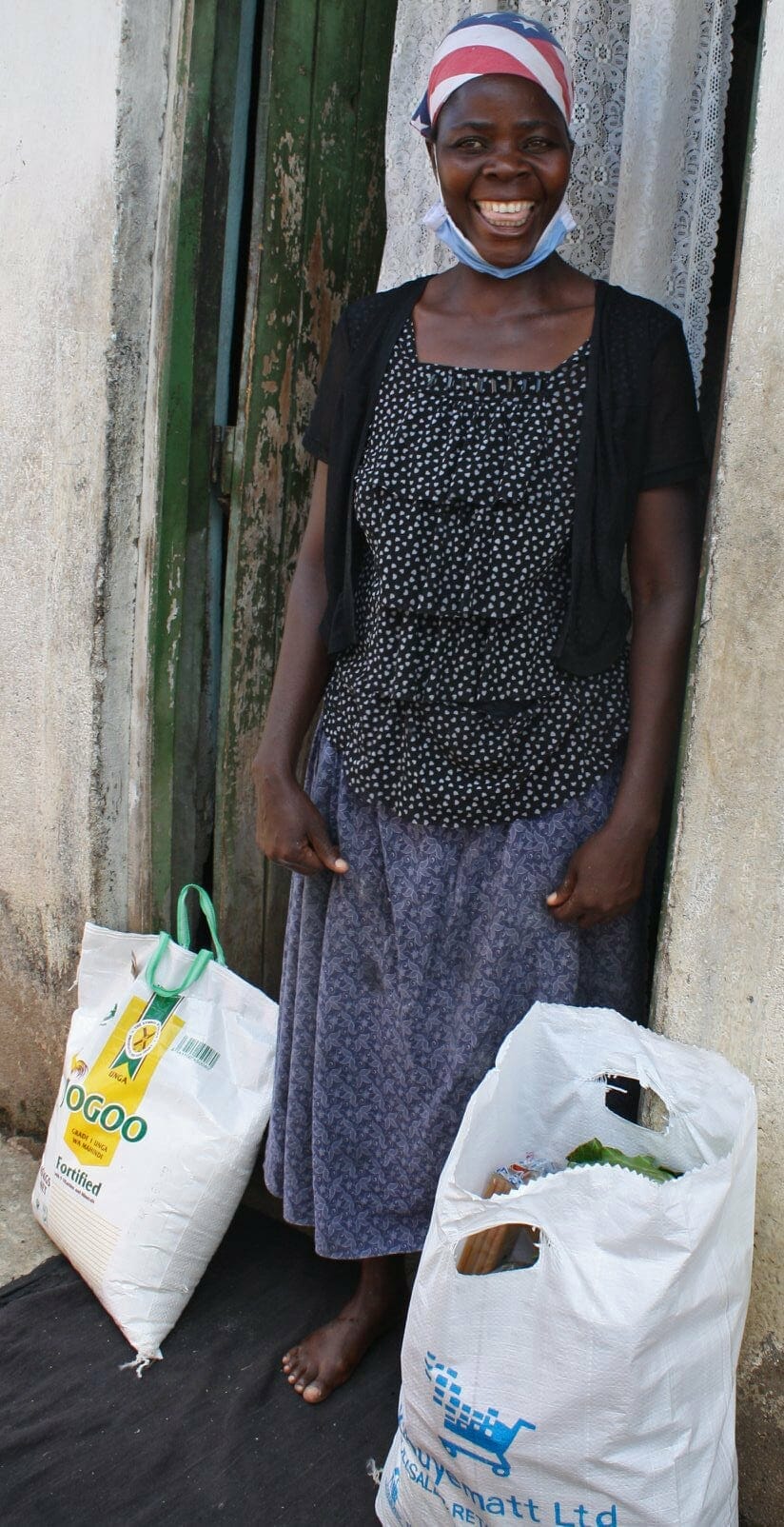 |
| A lady in Obunga receives her bags of food |
For Michael and me, this period has been frustrating and lonely, but we have food, a rental house with a yard, and internet at home enabling us to keep working. This is not the case for the folks we serve. This is where our greatest worry lay. What would happen if COVID-19 spread to Obunga or communities like it? What would happen in places where several family members live in one room houses, which are overwhelmingly hot during the day? What would happen to our friends who have limited access to water, much less clean water? What would happen to people who don’t have any land or space in which to spread out? The truth is, the spread of COVID-19 could decimate communities like these. Since we know we don’t have any control, we pray. We ask God for His mercy and His protection for our people.
As we prayed, we realized that though we aren’t a public health organization, there are a few things we could do. We could buy water tanks for hand-washing stations and make sure they are filled with soap and water several times daily. We could spread them throughout the community, so people have the chance to wash their hands as many times as they need. In addition, we could provide food to the most vulnerable among us. Many of the people Ndoto serves earn only enough money for each day, so there is no cushion for a time like this when many are losing their income. We put out a campaign for funds for water tanks and food baskets. You all responded quickly, generously, and joyfully. We raised more than $2,500. Over 60 families received huge food baskets containing flour, rice, beans, cooking oil, sugar, salt, soap, vegetables, and more, and the twelve hand-washing stations are continuing to operate fully. Our staff did an incredible job of buying in bulk, negotiating, and thinking creatively to maximize each cent. We still plan to help more families in the coming weeks.
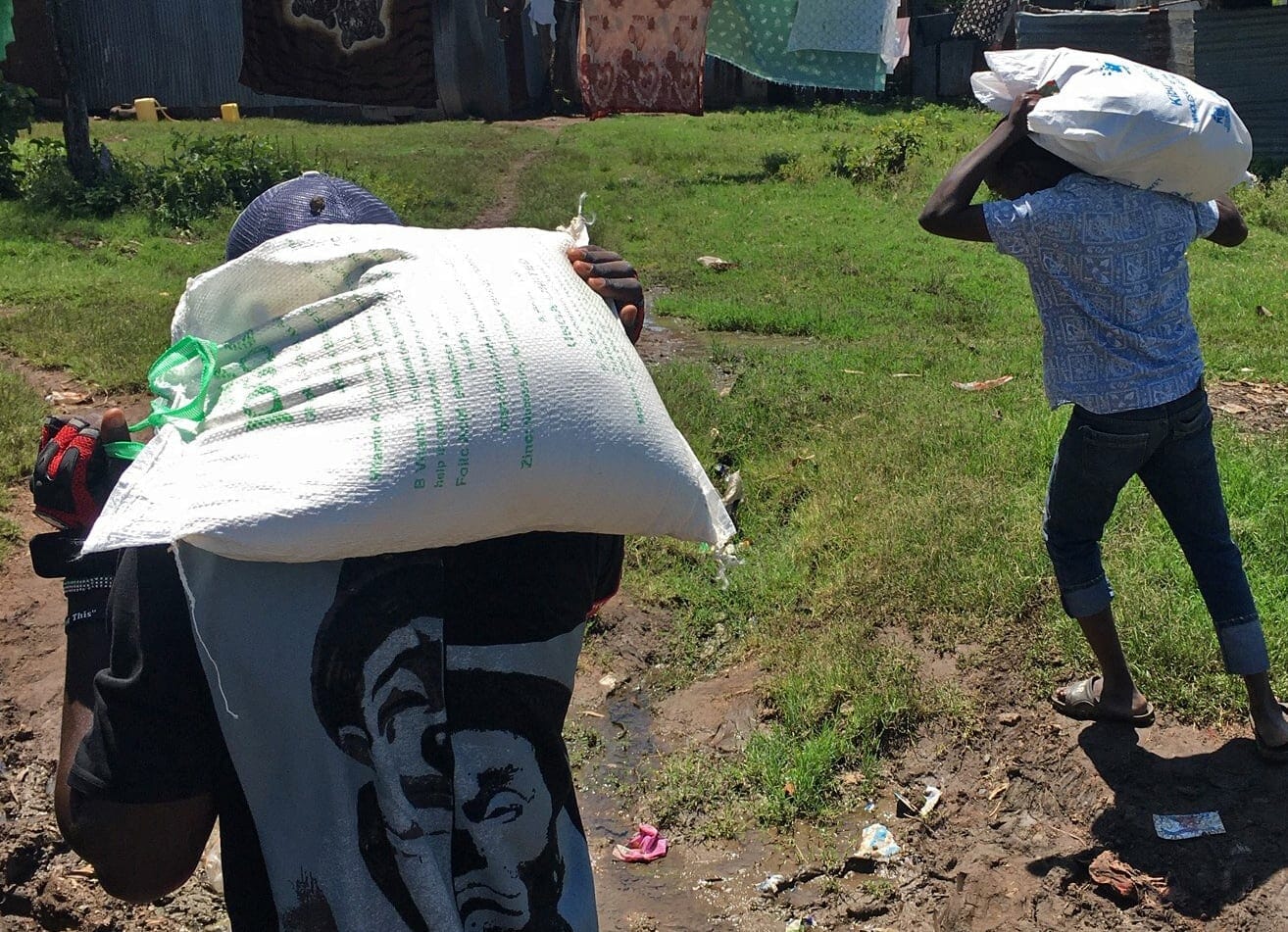 |
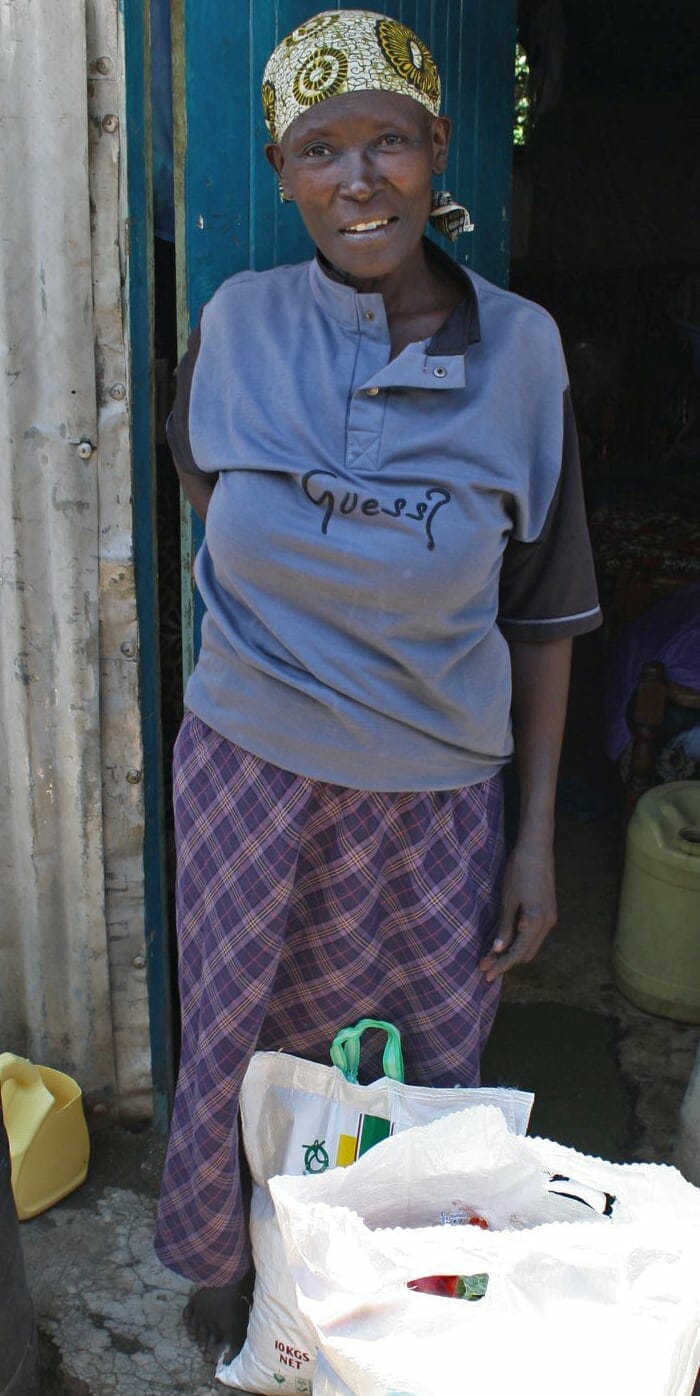 |
| The food bags are designed to have basics for a month |
Michael goes to Obunga periodically to check on our building, our guards, and folks who pass by the church. One day, as he was heading home, an older lady stopped him. She began to thank him profusely for the food basket she received. She couldn’t believe there is an organization that helps people who aren’t sponsored by Ndoto or attend Ndoto Community Church. She was overcome that she, a grandmother in her sixties who takes care of many of her orphaned grandchildren, could be the recipient of such kindness and generosity. She insisted on writing a thank you note, and she requested it be attached to our annual government report confirming we are a good organization. Our philosophy when all of this began was to bless the community – as much of it as we could. Not just those we know. Not just those we like. Not just those with whom we agree. Not just those who know Jesus.
While we are mourning the cancellation of our daughter’s first birthday party, the restrictions on our freedom, and the inability to travel, we are reminded that this is not the end of the story. God is showing us that in all circumstances there is an opportunity to help, to be generous, and to look beyond ourselves. Often, it is in these struggles that Christ’s light and hope shine more brightly, as it has for that mama.
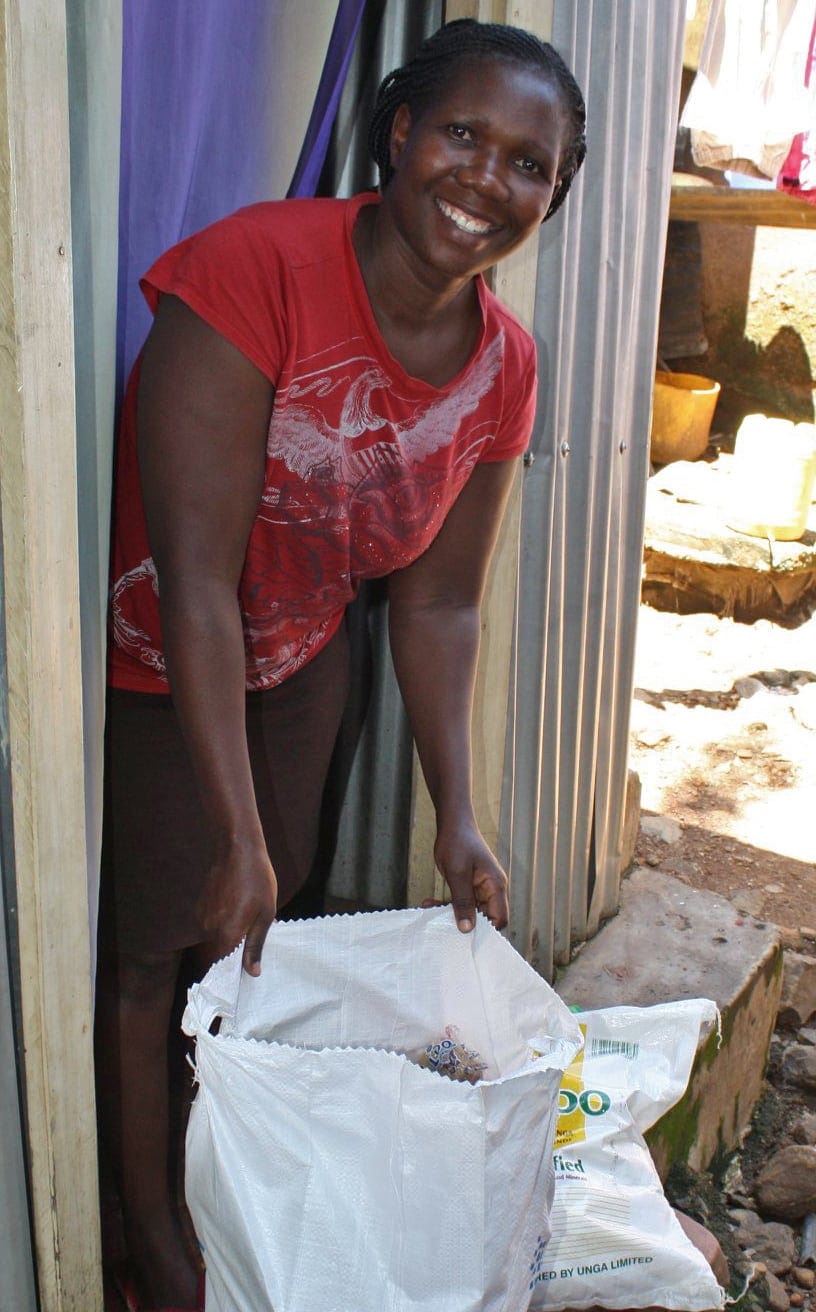 |
| Everyone was overjoyed to receive some assistance in a tough time |
These are her words, which we pass on to you:
“My name is Mama Benja. I take this opportunity to send you this message. I would like to give a big thanks to all of you and the Ndoto Team for this idea. We all thank you, and we shared with my friends, family, and neighbors. We were not fine, and you saved us.” Then, her son added his thanks: “I am Benjamin, the last born. I also thank you. Continue on with this heart of helping. May God bless all of you and your team. Thank you very much.”
Psalm 91:1-16 and Colossians 3:12-14.
On behalf of Mama Benja and her family, and all of the other families who received food or have a place to wash their hands, we say thank you. From our team and my family, thank you for standing with us and generously looking beyond your needs to the needs of others. We say thank you from the bottom of our hearts for making this possible. For we never know how God might use COVID-19 to change lives in Kenya.

